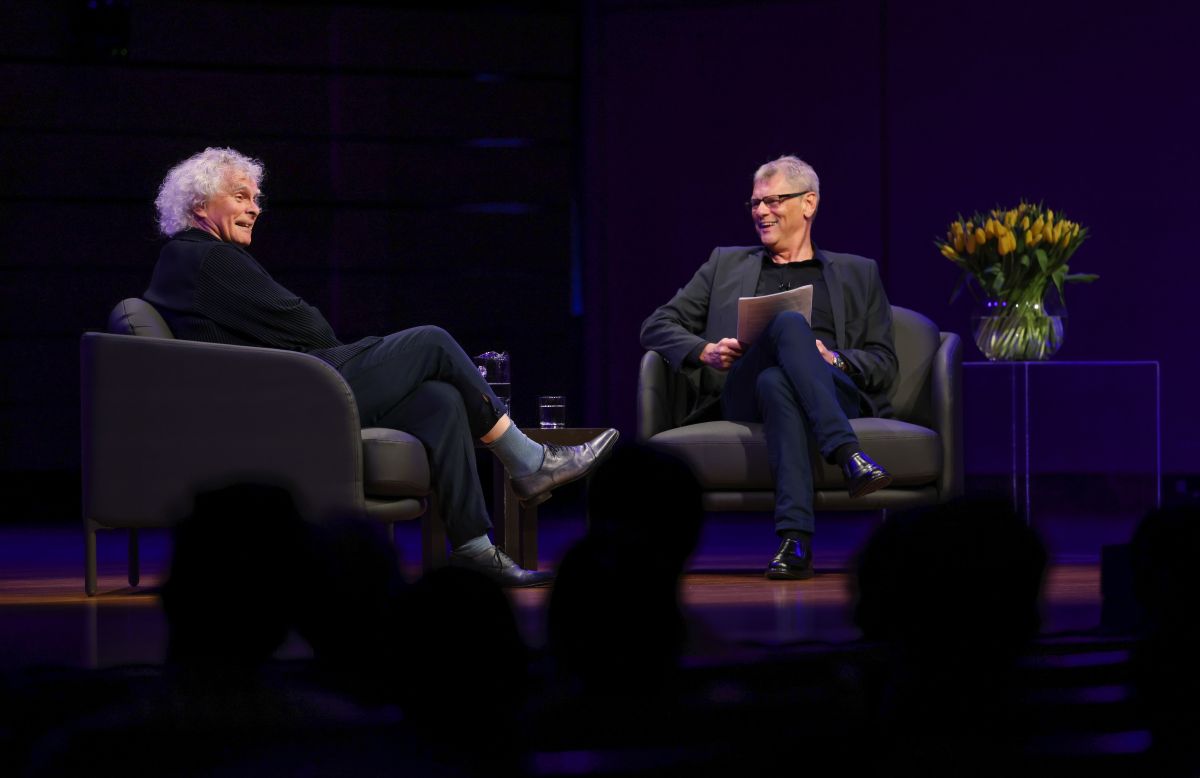Sir Simon Rattle, Music Director of the London Symphony Orchestra (LSO), is in Australia for a series of concerts presenting the LSO in Brisbane, Sydney and Melbourne. It is only the fourth visit to Australia by this illustrious world-renowned orchestra in its 120 years of operation, and Rattle’s third visit. His first was with the Berliner Philharmoniker, when he was Principal Conductor for 16 years, and the second was as Guest Conductor with the Australian World Orchestra.
On the eve of the opening night concert in Brisbane, with a program including John Adams, Debussy and Ravel, Rattle shared his thoughts and aspirations with ABC Radio National presenter, Martin Buzacott. The discussion was wide-ranging, covering his distinguished career, the importance of musical education, presenting live music performances in the digital age and his recent public statements on funding cuts to the arts in the UK.





